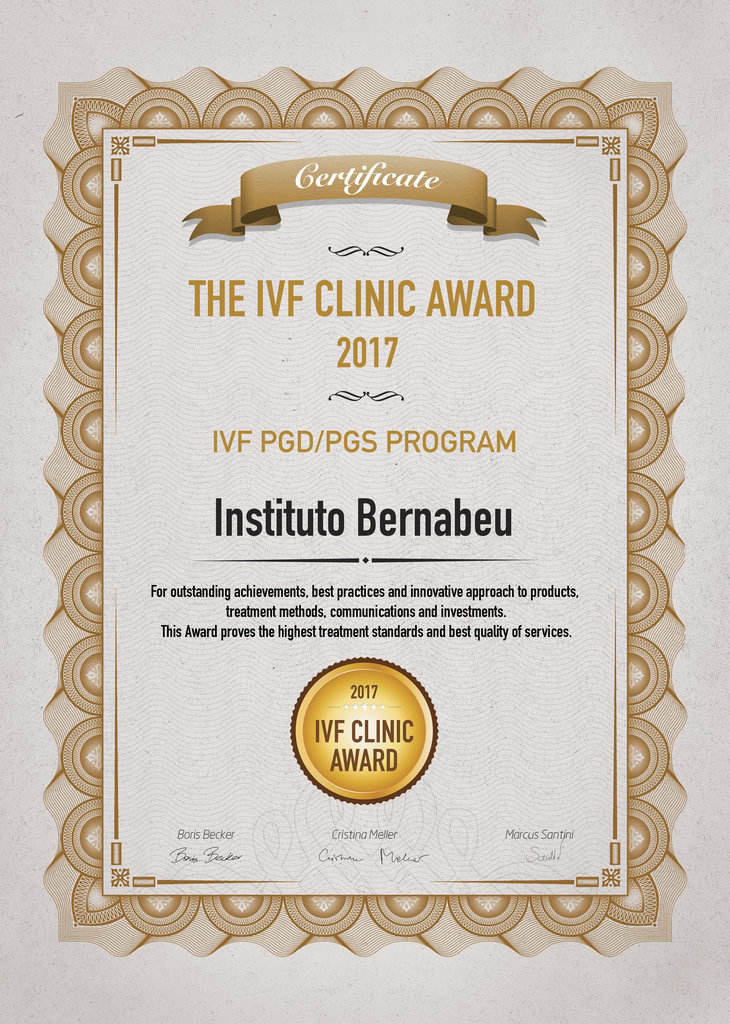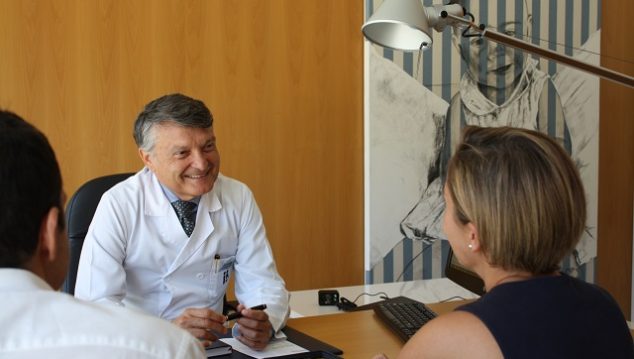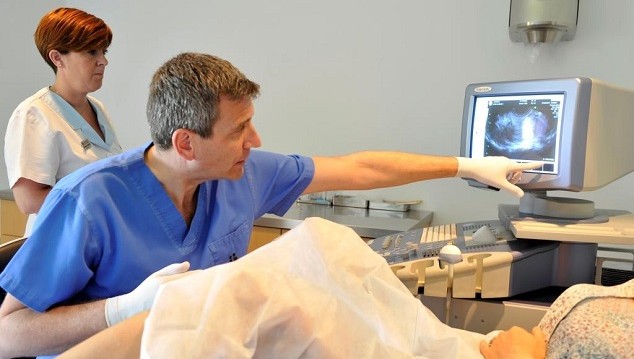EggDonationFriends team knows that fertility patients choose those clinics that, not only have transparent offers and pocket-friendly pricing, but also clinics that offer best diagnostic tools, most advanced procedures and best success rates. One of the clinics that excels in IVF diagnostics and embryo testing is Instituto Bernabeu, IVF clinic from Alicante, Spain. Instituto Bernabeu has been awarded by IVF Media/EggDonationFriends for their PGD/PGS Program. At the moment the clinic employs an impressive number of embryologists – 15, 26 physicians, 22 nurses/midwives and 25 members of patient service team. Most of the patients who use the clinic’s Egg Donation Program are international patients – 80%, the remaining 20% egg recipients come form Spain.
Awarded for the best IVF PGD/PGS Program
We have spoken to dr Rafael Bernabeu, the Medical Director of the clinic.
EggDonationFriends: You have previously won the IVF CLINIC AWARD in the category IVF Agency of the Year 2016. Why did you apply for IVF CLINIC AWARD 2017?
Dr Bernabeu: That’s correct. Last year we won the IVF Agency Award of the year 2016. This year we applied for the IVF PGD/PGS Program because we created a state-o-the-art program for preimplantation genetic diagnosis with massive sequencing, which offers the highest level of accuracy and reliability.
EDF: What does it mean to you to win the award for best PGD/PGS testing?
Dr Bernabeu: It means a lot to our team. We are aware that IVF CLINIC AWARD is a very well-known distinction and it honours the excellent work done by our molecular biology and genetics team.
EDF: What has changed in Instituto Bernabeu since 2017?
Dr Bernabeu: As I stated previously, thanks to our top quality preimplantation genetic screening program we are able to select embryos better. This allows us to transfer a single embryo with the highest chance of healthy pregnancy without risking multiple pregnancy or lowering the chance of success. Furthermore, we have lowered the rate of miscarriages.
EDF: How did you lower the rate of miscarriages? What technology/method/testing did you use for that?
Dr Bernabeu: It is quite straightforward. The vast majority of miscarriages are due to chromosomal anomalies. The use of the Next Generation Sequencing allows us to exclude embryos carrying any anomalies. For this purpose, we culture the embryos to blastocyst stage (day 5 or 6) to perform embryo biopsy. Then we freeze all of them and transfer in a subsequence cycle, either in a natural cycle or with hormonal replacement therapy.
How is PGD testing done?
Next-generation sequencing (NGS) has been a breakthrough in biological science and speeded up medical research. If we are dealing with IVF with own eggs, before the embryo testing is performed, it is important to carry out genetic testing of the future parents. The specialists need to identify any possible gene errors (mutations) which may cause genetic disorders. Then having those test results, the embryologists can perform PGD (via embryo biopsy). The clinic’s molecular biology lab analyses the samples looking for the disorder in question. The lab team selects only healthy and viable embryos that will guarantee a healthy pregnancy.
If IVF with own eggs and PGD/PGS testing is something that you are interested in, or you suffer from recurrent miscarriages when trying to conceive naturally, make sure you select a clinic that offers best genetic testing program. Best embryo selection means higher success rates, shorter overall treatment time, and possibly, less stress and worry for the patient. Check the award winning clinic, Instituto Bernabeu, to discover more about genetic testing they perform.







